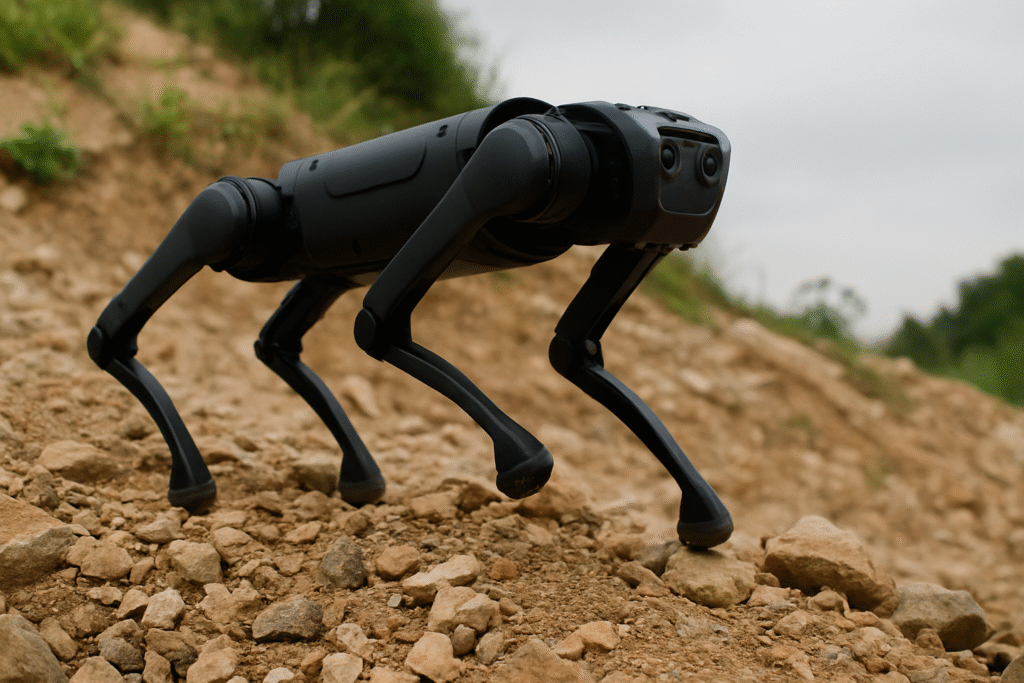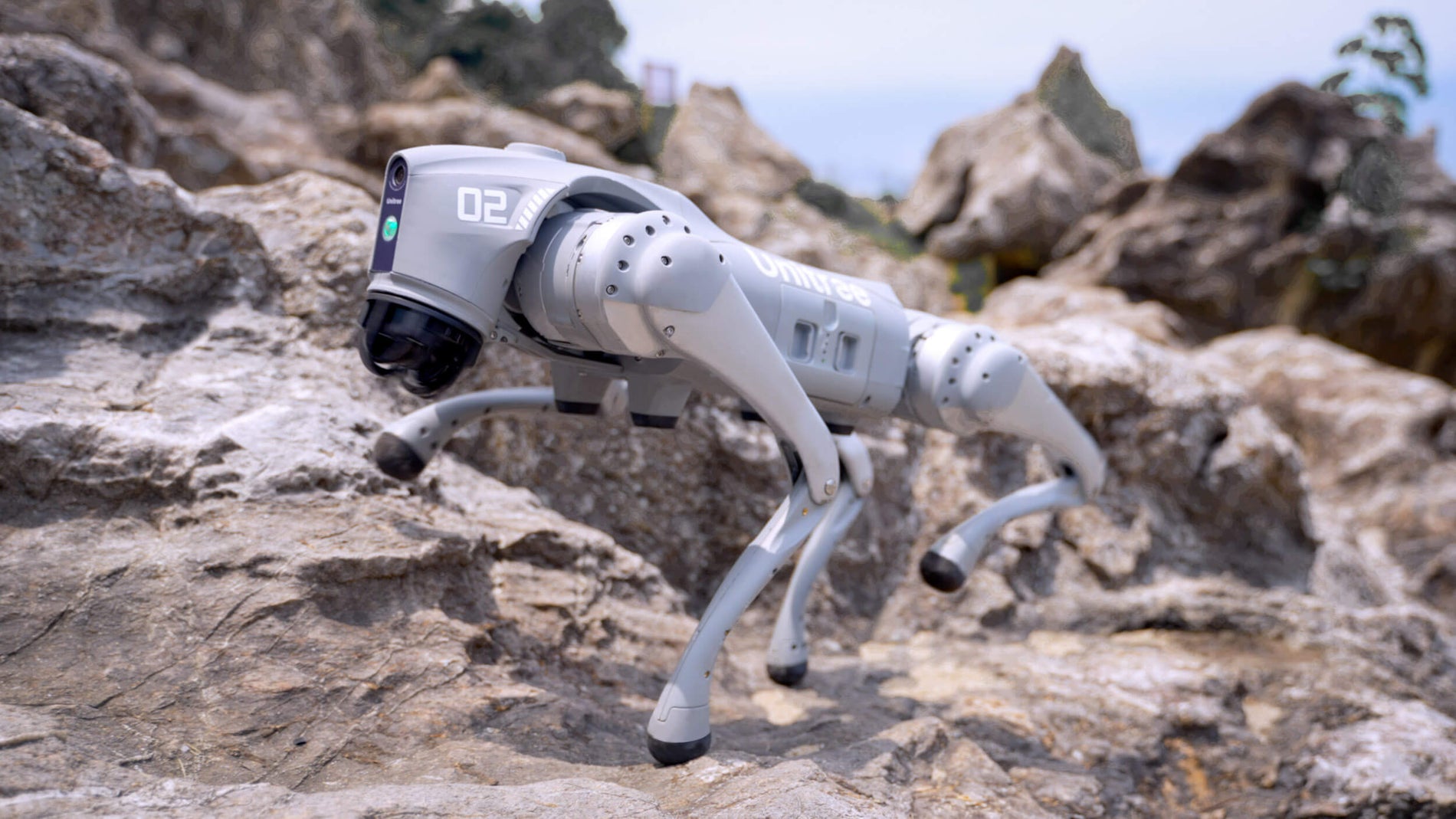In a stunning display of technological prowess, Chinese robot stocks saw a remarkable surge this week after Unitree Robotics unveiled a jaw dropping video of its latest innovation a mechanical dog with near human agility and intelligence. The video, which went viral within hours, ignited investor interest and sparked conversations about China’s increasingly dominant position in humanoid and quadruped robotics.
On Wednesday, the Solactive China Humanoid Robotics Index which tracks Chinese robotics firms jumped nearly 5%, propelled by excitement surrounding the mechanical dog from Unitree. This spike reflected both short-term optimism and long term confidence in the country’s robotics future.
The video showcased the mechanical dog effortlessly scaling slopes, balancing on one leg, and traversing rugged terrain. These were not just gimmicks. They highlighted real world applications in search and rescue, logistics, and even elderly care, drawing sharp attention from both technologists and investors alike.
This is more than a stunt. Unitree has demonstrated a leap forward in robotic locomotion. The agility and adaptability seen here are years ahead of most global competitors, said Dr. Alice Peng, Robotics Engineer at Tsinghua University.
Why Chinese Robot Stocks Are Gaining Global Traction
For the last decade, China has aggressively poured funding into robotics, AI, and automation, aiming to reduce dependency on imported tech and bolster its industrial independence. The current momentum around Chinese robot stocks is the result of years of sustained R&D, government support, and private sector innovation.
The Made in China 2025 initiative explicitly names robotics as one of its key pillars. As a result, local companies like Unitree, Fourier Intelligence, and Estun Automation are now challenging global giants like Boston Dynamics and ABB on their own turf.
What we’re seeing is the second wave of China’s robotics revolution. The first wave focused on industrial arms and assembly. This wave is all about mobility, intelligence, and interaction, said Yuan Li, Market Analyst at HuaAn Securities.
The Journey of a Disruptor
Founded in Hangzhou, Unitree Robotics began as a scrappy startup in 2016. Its founder, Wang Xingxing, envisioned a future where robots could work alongside humans in homes, warehouses, and disaster zones.
Their early models were dismissed by critics as toys, but persistent innovation turned the tide. By 2023, Unitree launched its first widely adopted consumer robot dog the Unitree Go1 which sold thousands of units globally for under $3,000, undercutting competitors and widening adoption.
Their latest mechanical dog is the result of nearly a decade of relentless development in multi motor coordination, edge computing, and real time terrain mapping.
I bought the Go1 model to help monitor my elderly mother’s home remotely. It walks, talks, and alerts me in case of emergency, said Sun Hao, a Shenzhen based software engineer. It’s not just a gadget. It’s peace of mind.

Global Investors Are Taking Note
The buzz around Unitree’s teaser spread quickly into stock markets. In just a few hours, trading volumes for leading robotic firms in China surged, and Chinese robot stocks outperformed both tech and manufacturing indexes.
International investors are now closely watching this space. With rising geopolitical tensions and global supply chain shifts, there is a growing appetite for diversifying into Asia based, non US tech stocks and Chinese robotics firms offer that gateway.
Unitree’s reveal has lit a fire under the sector. We expect strong M&A activity and strategic partnerships in the next 12 months, predicted James Eldridge, Analyst at Morgan Stanley Asia Pacific.
What sets this moment apart is the functional capability of the robot dog. Unlike previous viral robots that were more acrobatic than practical, this mechanical dog offers real solutions in real time environments. The agility makes it ideal for scouting difficult terrains or urban zones during operations.
With the aging population crisis, robotic assistants like these can offer critical home care and companionship. Navigating rubble after an earthquake? The mechanical dog has the flexibility and sensor intelligence for such tasks.
We’re entering an era where robotics will no longer be confined to labs or factory floors. They’re entering our daily lives, said Mei Zhang, AI Researcher at Baidu’s Robotics Lab.
China’s Robotic Future Is Barking to Life
The dramatic rise in Chinese robot stocks following Unitree’s teaser is not merely a market anomaly it’s a signal of where the future is headed. As China’s robotics ecosystem matures, the global tech race is no longer a duel between Silicon Valley and Tokyo Hangzhou, Shenzhen, and Shanghai are now fully in the game.
Unitree’s mechanical dog has not just captured imagination. It has reminded the world that innovation, especially in robotics, is increasingly coming from the East.
With cutting edge performance, real world applications, and growing public and investor interest, the mechanical dog is more than a viral hit it’s a milestone in China’s AI and robotics journey.
The rise of Chinese robot stocks will continue to make waves globally, driven by a fusion of ambition, technical excellence, and disruptive thinking.
